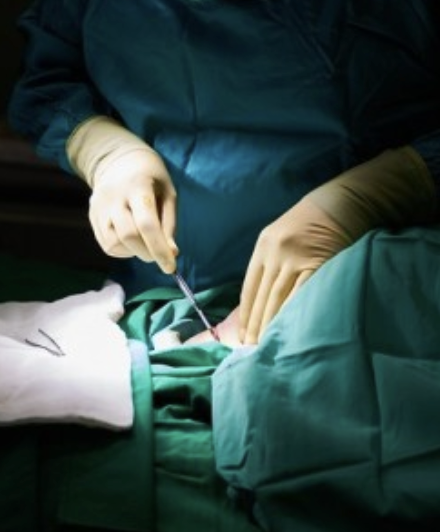High-tech scalpel: It provides surgeons with important information (Photo: Engin Akyurt, pixabay.com)
Gadget from the University of Chemistry and Technology provides important data during surgery
The scalpel of the future, developed by researchers at the University of Chemistry and Technology in Prague led by Zdeněk Sofer, provides surgeons with real-time biochemical data during surgery that can be crucial to the success of the procedure. The information is collected by a miniature biochemical laboratory. For now, the ‘lab in a scalpel’ provides information about the adrenaline content in the patient’s blood. Adrenaline is one of the most important hormones that must be monitored during surgery, as sudden fluctuations in its concentration indicate excessive strain on bodily functions. This stress hormone is also used to support local anaesthesia and minimise bleeding.
No need to go to the laboratory
During surgery, crucial information about biochemical blood components such as adrenaline can often only be obtained after a delay. The sample must be taken to the laboratory and analysed there. In extreme cases, this delay can cost the patient their life. During invasive procedures, a patient’s biochemical profile can change rapidly, which can have fatal consequences. The manufacturing cost of the sensor is expected to be only 40 euro cents per sensor.
The new sensor is manufactured entirely using 3D printing. It is so small that it can be easily integrated into the handle of the scalpel and consists of a combination of polylactic acid and conductive carbon nanomaterials. The former is used as an insulator between the two conductive electrodes. Adrenaline changes the electrical properties of the capacitor arrangement, which are a measure of the hormone’s concentration.
Optimal information for surgeons
The team compared the sensor’s results with those of a classic laboratory analysis. The correlation was striking. ‘During a critical procedure, waiting for a laboratory report is a luxury you cannot afford. We wanted to develop a multifunctional tool that minimises the number of instruments in the operating theatre and maximises the amount of usable information for the surgeon. We have shown that this is possible,’ says Sofer.
Now the team wants to modify its sensor so that it can also detect other biochemical substances and display their concentrations. Sofer is thinking of real-time monitoring of important metabolites, ions and pH values, which would lead to improved decision-making in oncological and emergency operations where every second counts.


